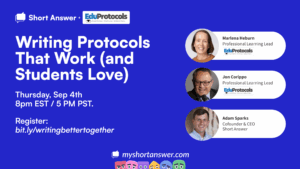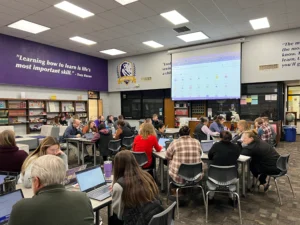What is an AI Prompt?
An AI “prompt” is a written directive given to an AI model (e.g. ChatGPT) instructing it to generate a specific type of response. For teachers, learning how to craft effective AI prompts can transform instruction, administration, and communication tasks that previously consumed prep periods (and personal lives). In this post, we’ll share the basics of AI prompting to get you started along with 3 prompts you can use right away in your classroom.
Prompting Basics
When writing prompts for your classroom, a helpful structure to keep in mind is the RTRI structure. Advocated for by Dr. Dany Liu, and education researcher at the University of Sydney, this approach is versatile enough to fit with almost any task a teacher might throw at it. RTRI stands for:
- Role: Start your prompt by telling the AI model what role it needs to play.
- Task: Summarize what you need the AI to do for you.
- Requirements: Explain what the completion of the task needs to include, contain, or be.
- Instructions: Describe what the AI should do to act on the prompt
To get started, check out the 3 prompts below that use the RTRI structure.
Prompt 1: Creating Questions for Short Answer
Short Answer works best with open-ended questions or writing prompts that ask students to synthesize, analyze, and apply information in new and creative ways. Coming up with these questions or writing prompts can sometimes be challenging. Copy-paste the prompt below into an AI tool like ChatGPT or POE, then customize it to your subject and students to start crafting better Short Answer questions in seconds.
Prompt 1: Take on the role of a teacher’s aid. It is your task to help a teacher create open-ended questions or writing prompts that required students to synthesize, analyze, and apply information. You should create 5 questions or writing prompts for the teacher along with 3 success criteria that students should keep in mind when responding to these questions or prompts. First, the teacher will type in their topic of study and the age group of their students. Then, you will create the questions and success criteria. Can you do this?
ChatGPT 3.5 Results (10th Grade World Lit Example)
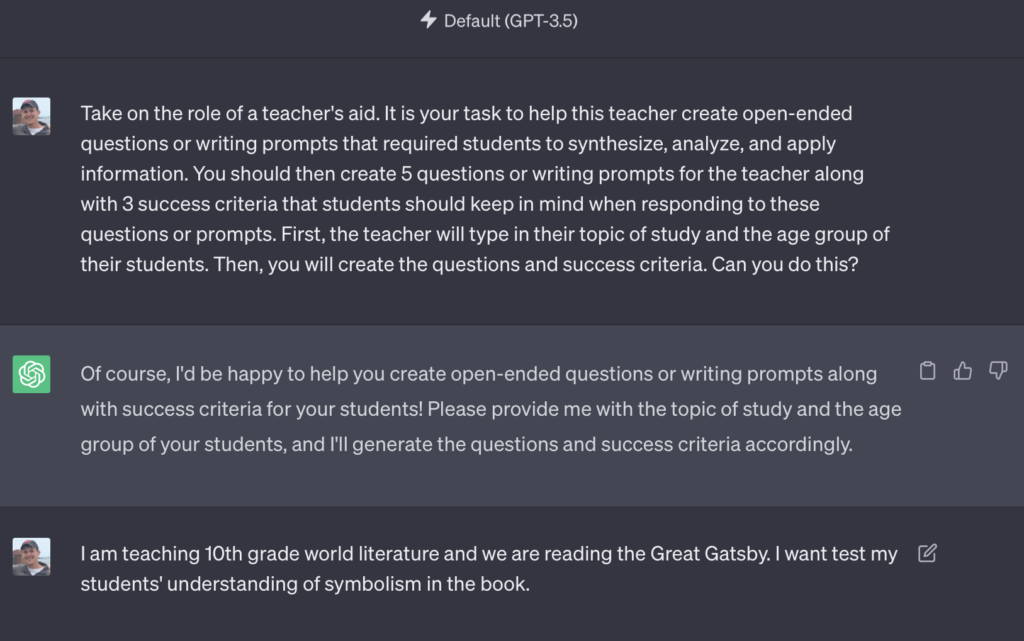
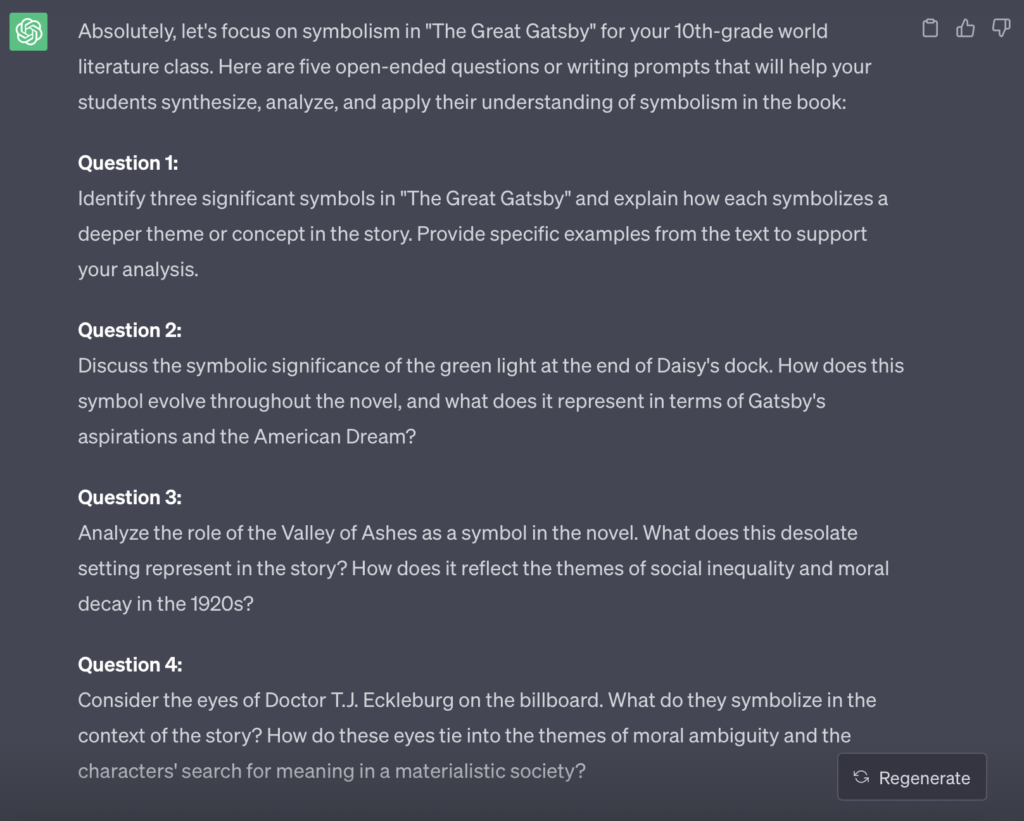
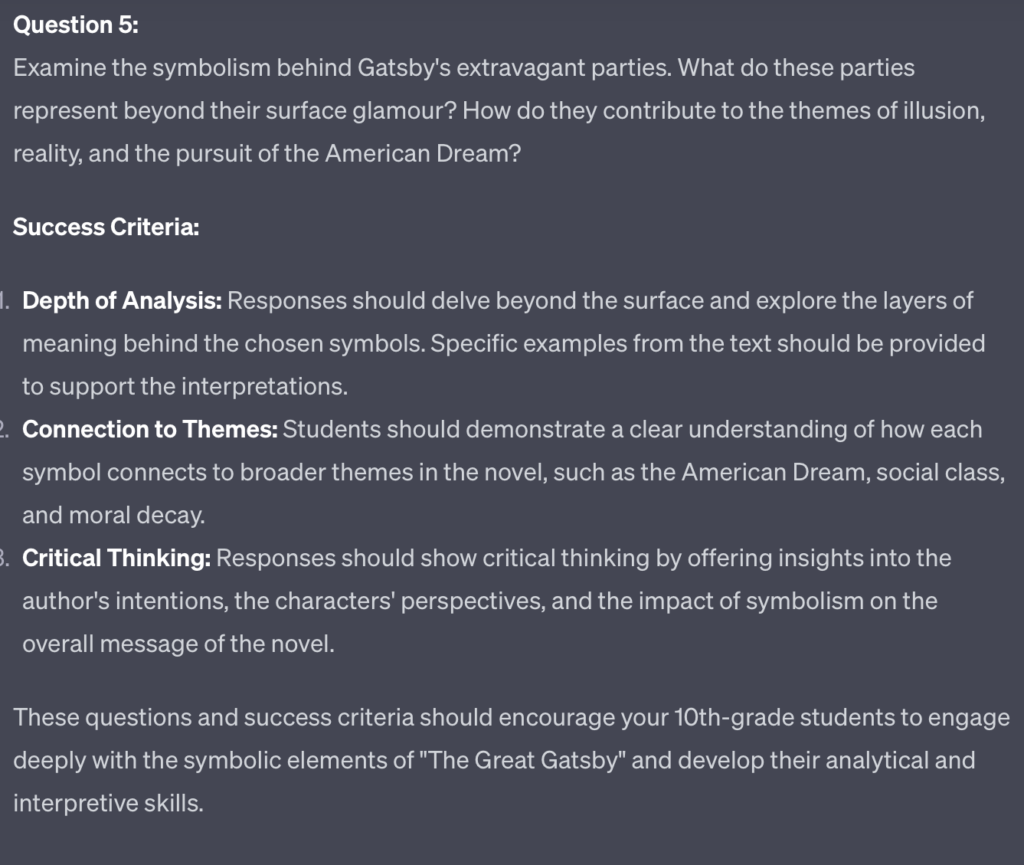
Prompt 2: Creating More AI Resistant Assignments
Short Answer is a great way to teach and assess student writing skills because our bite-sized, in-class activities allow for better control of AI in the student writing process. In the new world of AI in education, it can be challenging to ensure that the work we’re assessing is actual student work. To help combat this, the following prompt can be a great help in making your assignments or tasks more resistant to AI influence by suggesting tweaks or changes that AI tools still struggle to complete well.
Prompt 2: You are a teacher’s aid. It is your job to help teachers revise their assignments to make them more resistant to students using AI. I am going to describe my assignment and the age of my students. In three separate instances, I want you to restate the assignment, suggest a revised but similar assignment that I could use that would be more resistant to AI influence, then explain how that new assignment would be more resistant to AI.
ChatGPT 3.5 Results (7th Grade History Example)
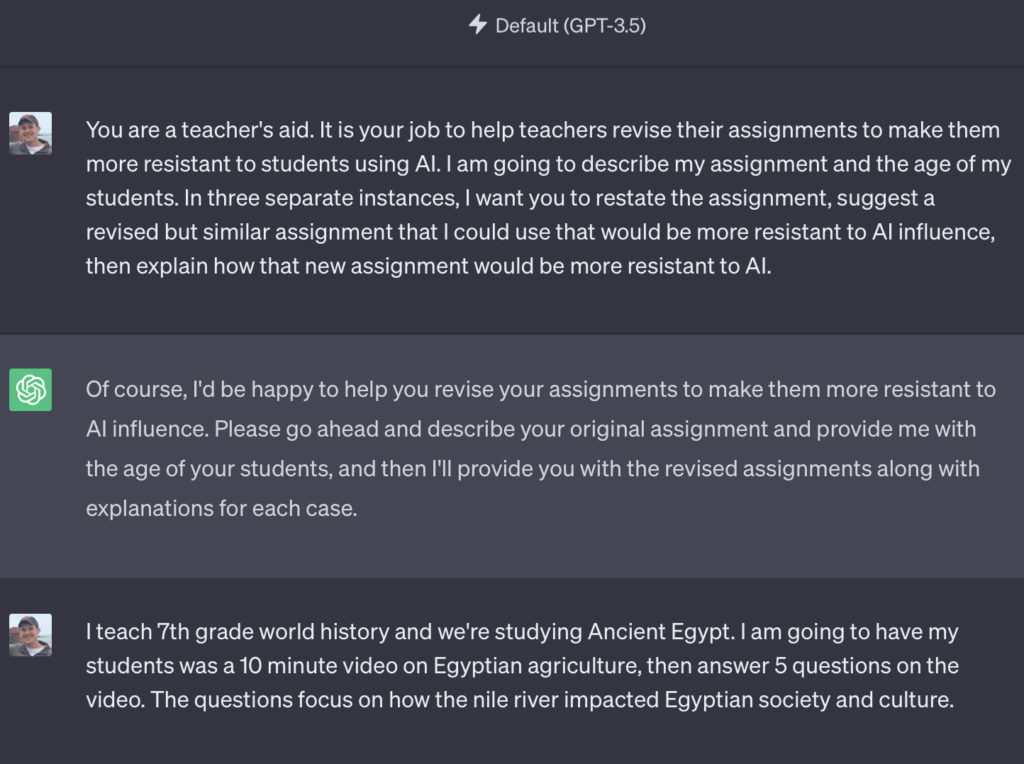
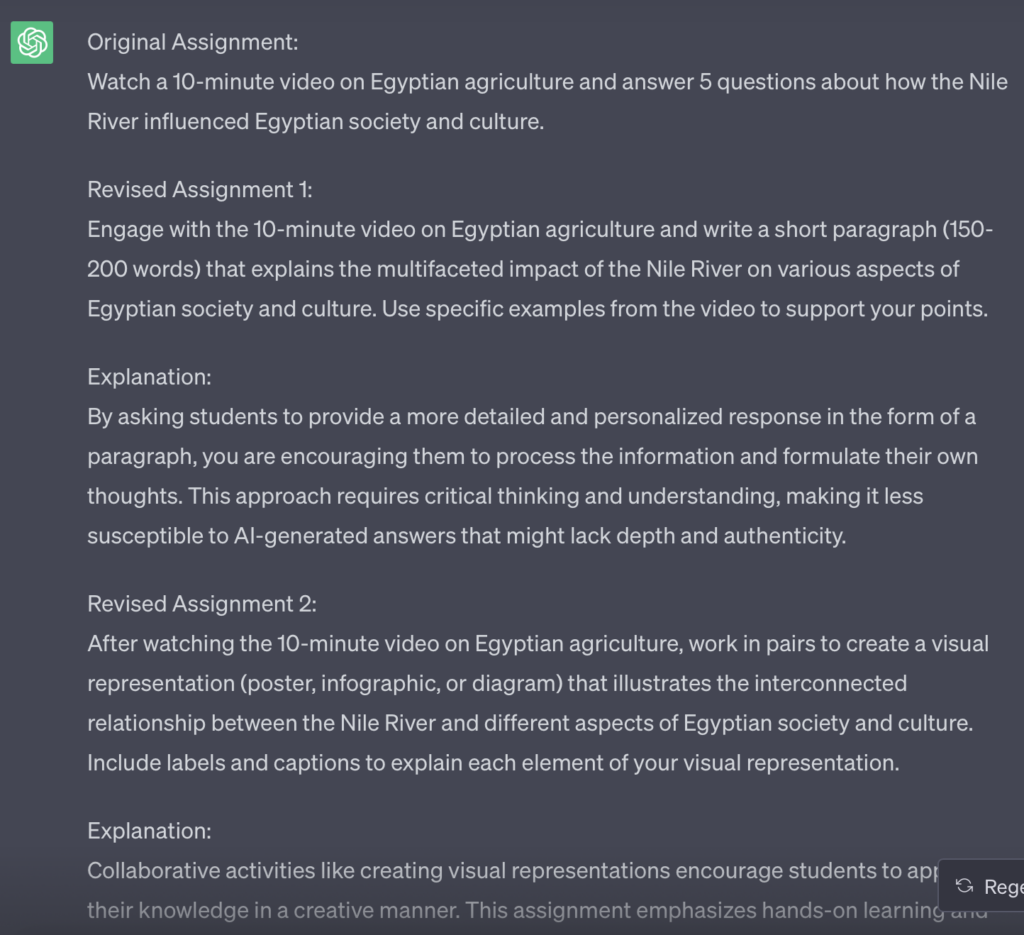
Prompt 3: Creating Leveled Reading Activities
Short Answer works very well in combination with reading activities. Combining reading and writing is a powerful way to develop and measure literacy. One of the ongoing challenges with reading instruction has always been in differentiating readings to the reading level of each student. That time-consuming process just became much simpler with this simple prompt.
*Disclaimer 1 – When using a prompt like this, make sure that the reading you copy-paste in is not copyrighted. Open Educational Resources may be a helpful resource.
*Disclaimer 2 – AI models are never perfect. Read through the leveled reading activity to make sure it has actually been edited to be more approachable before sharing with students.
Prompt 3: You are a teacher’s aid. It is your job to create leveled reading activities to match the reading levels of individual students. The teacher will copy-paste in the text the class is reading. It is your job to cover the same exact content, but to reword it to be approachable for a student reading at a ___ reading level. You should also create ___ reading comprehension questions based on the reading and identify ___ key vocabulary words that students should study before hand to better understand the reading.
ChatGPT 3.5 Results (6th Grade Science Example)
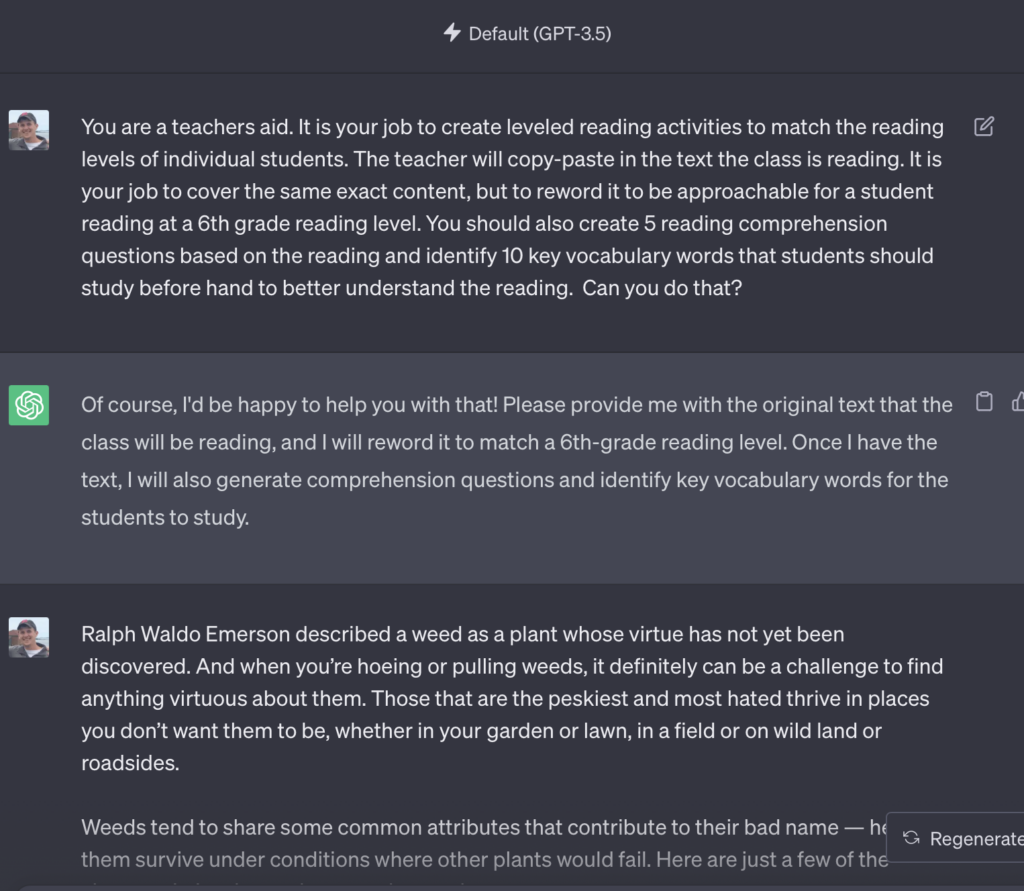
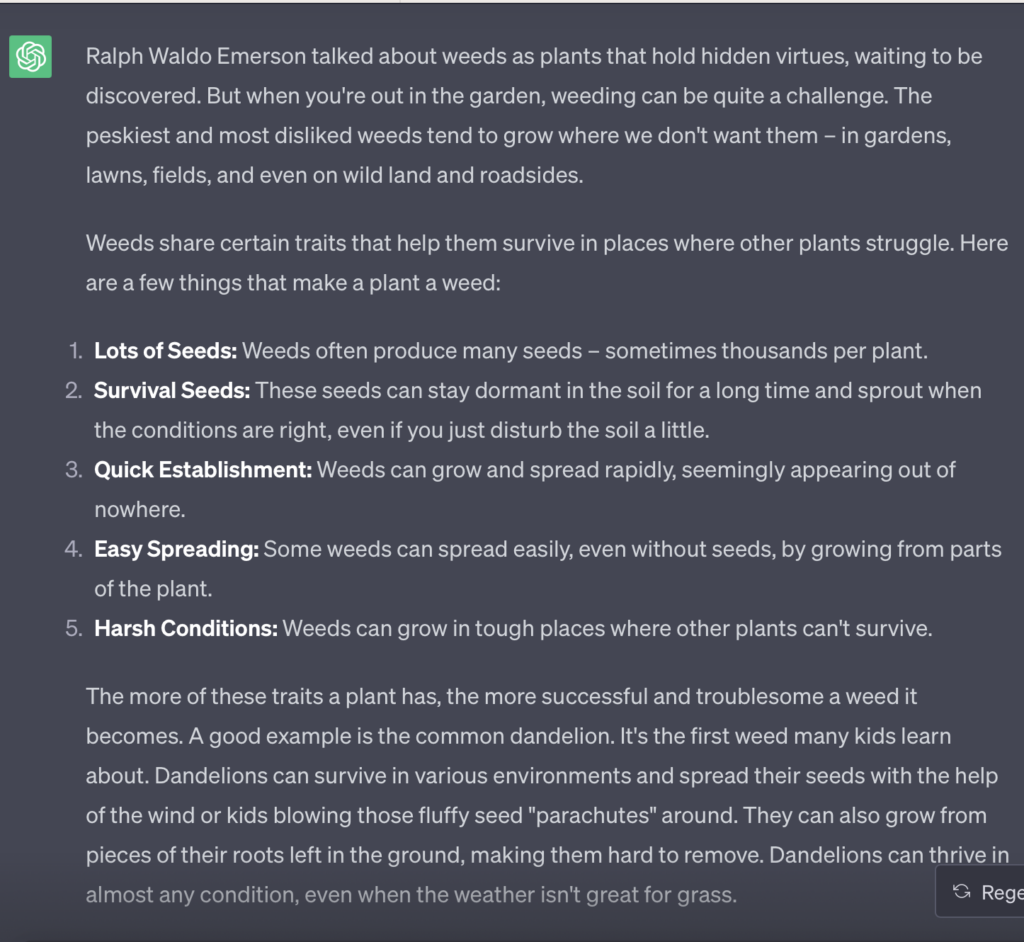
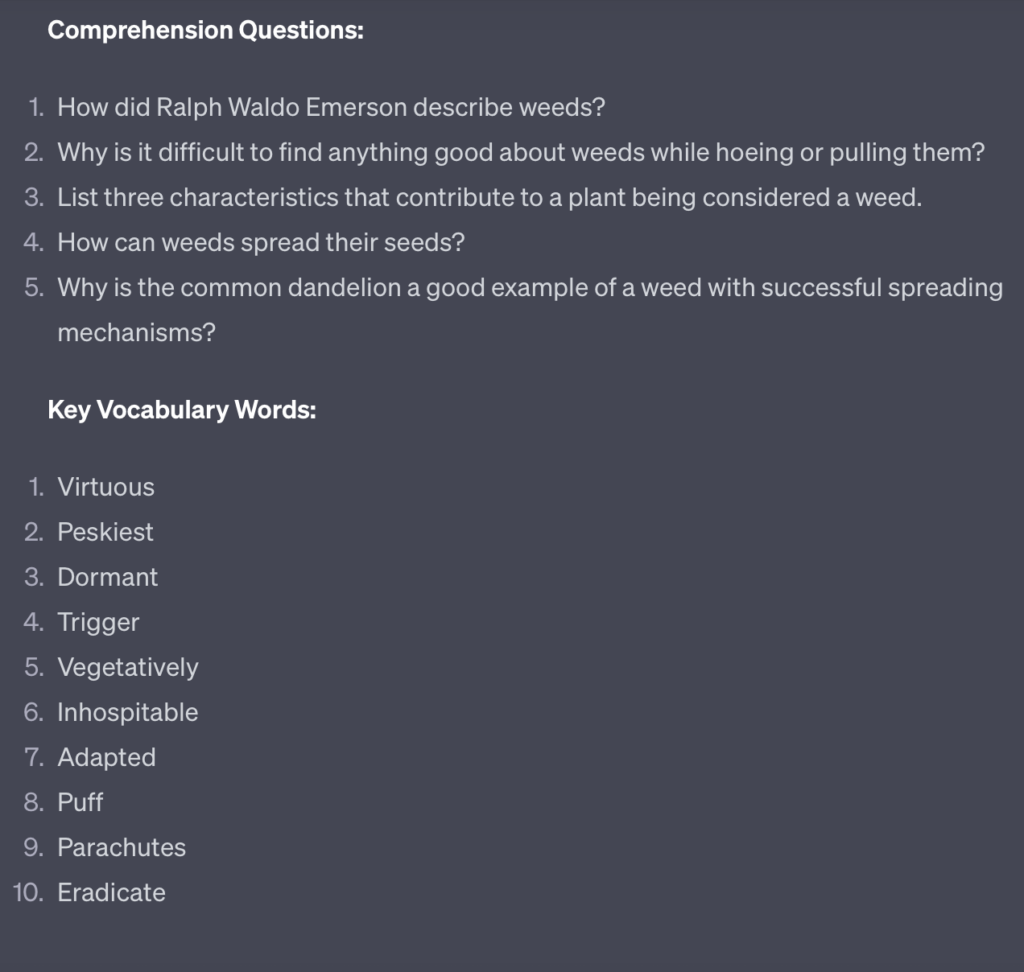
What will you create?
Short Answer works very well in combination with all of the prompts listed above. Hopefully, they serve as a jump-off point to explore other prompts specific to your classroom: Constructing mass emails to parents for a field trip, crafting the first draft of an upcoming quiz, or creating better standards-aligned lessons. The possibilities are endless. As you explore your own prompts, feel free to tag us on Twitter, Facebook, or TikTok. We’d love to see what you create!

